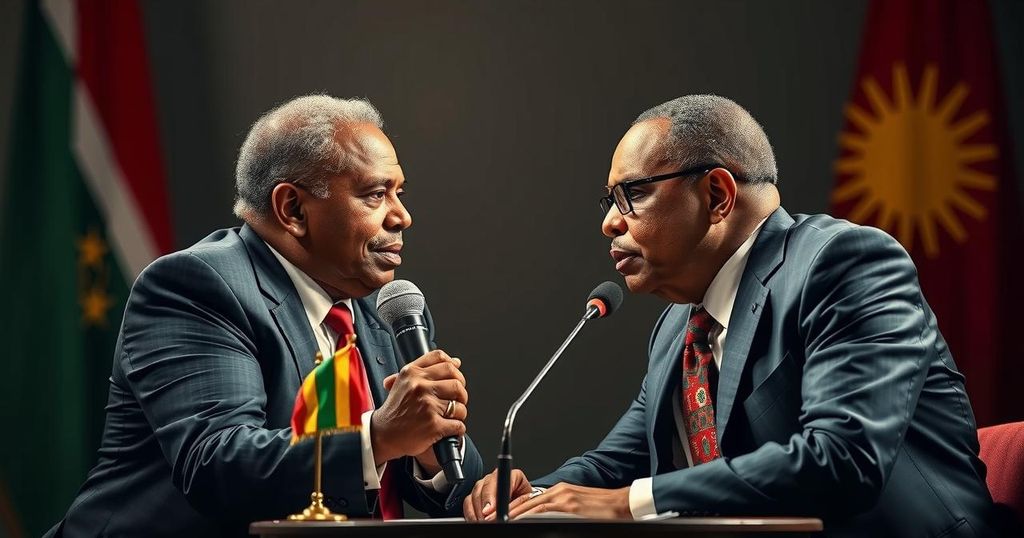Namibia’s Historic Election: A Potential First Female Leader in Nandi-Ndaitwah

Namibia’s upcoming election may result in the country selecting its first female president, Netumbo Nandi-Ndaitwah of Swapo. Facing challenges like high unemployment and political dissatisfaction, she competes against Panduleni Itula from the IPC, who appeals to younger voters seeking reform. The election outcome is critical, reflecting broader sentiments within the nation concerning governance and change.
In this week’s election, Namibia may potentially appoint its first female leader, Vice-President Netumbo Nandi-Ndaitwah, the candidate for the ruling Swapo party. Nandi-Ndaitwah, aged 72, faces significant challenges amid a backdrop of political dissatisfaction and economic hardship. With unemployment hovering at 19%, public concerns regarding corruption, and rising inequality, the viability of her long-standing party is questioned. In contrast, her main opponent, Panduleni Itula of the Independent Patriots for Change (IPC), emerges as a fresh voice vying for change, appealing particularly to younger voters seeking economic reforms. Nandi-Ndaitwah’s experience, characterized by years of high-ranking government service, coupled with her commitment to Swapo, positions her as a familiar yet traditional choice within a society grappling with gender and political norms. While the Swapo party has been dominant since independence, any indication of a swing toward opposition remains a significant factor in the upcoming election outcome.
The upcoming election in Namibia is crucial as it may culminate in the election of the country’s first female president. Vice-President Netumbo Nandi-Ndaitwah represents Swapo, the ruling party since the nation’s independence from South African apartheid rule in 1990. However, an atmosphere of disillusionment with political establishments and prevailing economic challenges—including a high unemployment rate and allegations of corruption—forms the backdrop against which this election is taking place. Her challenger, Panduleni Itula, symbolizes a new wave of political opposition, aiming to attract voters dissatisfied with the current status quo.
The Namibian election is pivotal, potentially marking a historic occasion should Nandi-Ndaitwah secure victory as the first woman leader. However, the presence of a significant anti-incumbent sentiment and socio-economic concerns complicate the electoral landscape. With Itula representing a call for change, the election outcome will hinge on voters’ priorities regarding governance, transparency, and economic revitalization, which could determine Namibia’s political trajectory and future leadership.
Original Source: www.bbc.com







